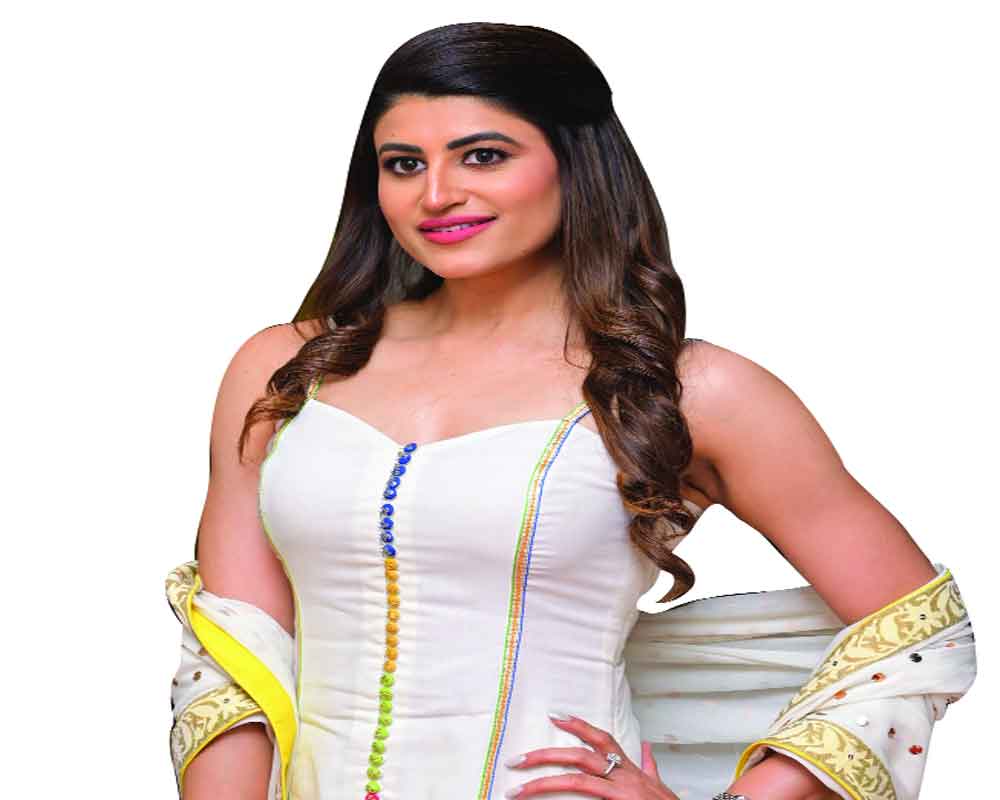Poonam Dhillon returns in Ek Kori Prem Katha alongside newcomer Khanak Budhiraja, a film that tackles the sensitive subject of the Kori tradition. In this conversation with SAKSHI PRIYA the film’s cast dwells on the gravity of sensitive social issues and the challenge of questioning outdated traditions.
Poonam Dhillon, can you elaborate on the journey your character undertakes in the film?
In Ek Kori Prem Katha, my character embodies the acceptance of the Kori tradition, deeply rooted in her family, village, and society, which she embraces without a question. The story progresses with a newly-wed girl who enters a family, deeply in love with the son. Initially happy with the union, tensions arise in the family when the daughter-in-law refuses to participate in the Kori tradition, leading to shock and hostility where my character begins to gauge the unjust nature of the tradition and the need to refuse the perpetuation of such practices. This marks a transformation in my character, as she starts to support her daughter-in-law in opposing the Kori tradition. Together, they stand up against this outdated tradition in their powerful journey of change and empowerment. The film narrates my character’s journey as she challenges outdated traditions for the greater good of evolving our cultural norms.
How did you prepare to play a character with a different perspective than your own?
Well, every time I play a character, it is different, and 99 per cent of the time she is not the real me. So, I always start with the physical attributes of the character, how she dresses, talks and walks, and slip into the role from the director’s, and the writer’s, point of view.
How did you feel working with Raj Babbar in this film?
Working with Raj Babbar after so many years felt really good. Today, I feel our communication is much better. As an actor and a person, he is great, and at this stage in life it feels good to talk to him. I must admit, I didn’t even have his phone but now we are far more comfortable and enjoy working together.
Were there any humorous moments during the shoot?
Our shooting location was actually quite funny, or perhaps the set itself was, I’m not entirely sure, but I think we had our funny and sad moments. We were told that we would be shooting in a haveli, (a large bungalow) but when we reached the location we were surprised because in villages, they refer to old houses as haveli. In our minds the visual of a haveli is more like a grand palace, like in Rajasthan. In reality what we faced was actually humorous.
How did you handle the challenges of outdoor shoots?
Outdoor shoots come with their own set of challenges and difficulties. If we think everything should be according to our expectations and perfect that is impossible. Undue expectations make you unhappy which disturbs the whole unit. So, one adapts and adjusts.
Khanak Budhiraja, what drew you to the role of Sabhayata, the challenges you faced in bringing her story to life, given the gravity of the film’s subject?
I am an introvert and feminine by nature and I am not a sportsperson. So playing Sabhayata was a very challenging task. Like Poonam said, 99 per cent of the time you do not find a role which you relate to, thereby the challenges. Apart from learning how to ride a bus and drive a bike, my character had to be bold on-screen. In our society we still fight shy of issues like virginity. I am happy that at the outset of my career, I could play such a role.
Khanak, as a newcomer, what did you learn while filming?
I think filming everyday on the sets is in itself a learning process. We prepare ourselves for something which is poles apart from the scenes we actually shoot. As my first film, I was nervous, wondering about the surprise element in every scene. It took time, but I got used to it.
Khanak, your character fights against a regressive tradition. How did you prepare for the role of Sabhayata?
I researched, and met two victims in Rajasthan, although they were initially not forthcoming about their experiences. I did manage a conversation with one of them. It is unfortunate to see that girls continue to bear such atrocities in a society which speaks of gender inequality. Our film is about the change that is unfolding.
Is there an artist in this industry who influences you?
I think Priyanka Chopra and Parineeti Chopra who was my senior in school. I am really inspired by both of them. Their journey is truly motivational. I will try my best to keep moving ahead.
Chinmay Purohit (Director), what do you hope the audience will take away from this film?
I hope the audience will understand the depth of the subject and plot, and they will take away the learning that we should not treat women like we do and what needs to be done.


























